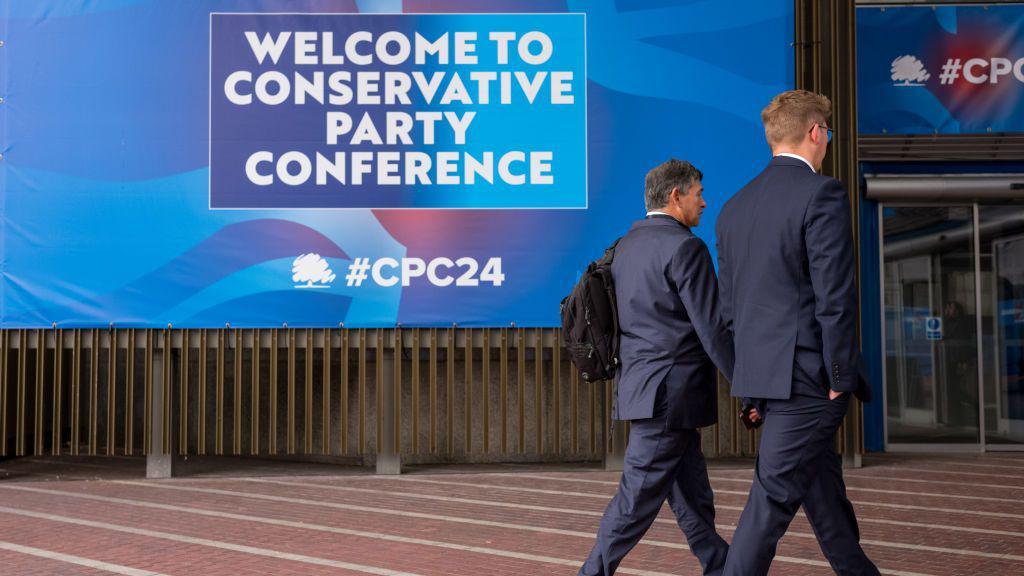The Conservative Party is poised to unveil proposals for significant reductions in public spending, targeting welfare, overseas aid, and the civil service. The shadow chancellor is expected to outline measures that could save an estimated £47 billion over five years.
In a speech to the party conference in Manchester, Sir Mel Stride is anticipated to assert that “there is no more pretending we can keep spending money we simply do not have.”
The proposals reportedly include tightening welfare eligibility for individuals with “low-level mental health problems” and a substantial reduction in the civil service workforce, potentially cutting approximately 132,000 positions, or around a quarter of the total.
Furthermore, Sir Mel is expected to announce plans to reduce aid spending by £7 billion, bringing it down to 0.1% of national income.
The conference in Manchester marks almost one year since Kemi Badenoch was elected party leader.
Over the past year, the party has faced challenges in countering the political influence of Reform UK and endured significant setbacks in the recent local elections.
During the conference, which commenced on Sunday, the Conservatives aim to project an image of competence and credibility, particularly in matters of public spending, in contrast to their political rivals.
In his address, Sir Mel is expected to state, “We must get on top of government spending.”
“We cannot deliver stability unless we live within our means.”
“We’re the only party that gets it. The only party that will stand up for fiscal responsibility.”
His proposals include saving:
Earlier this year, the Labour government attempted to cut nearly £5 billion from disability and health-related benefits but reversed course following opposition from its own MPs.
Work and Pensions Secretary Pat McFadden has indicated that the government will revisit the issue, stating that changes to the welfare system “must happen.”
Last year, the Office for Budget Responsibility projected that total spending on health and disability benefits would rise from £64.7 billion in 2023-24 to £100.7 billion in 2029-30.
The Conservative Party asserts that it can reduce spending by reviewing exemptions for the Household Benefit Cap, limiting the VAT subsidy for Motability, and modifying obligations for job seekers.
The party says it would stop claims for people suffering from “low-level health” mental health problems arguing that “what is really needed is treatment and support, not cash”.
The party also plans to maintain the two-child benefit cap, which restricts households on universal or child tax credit from receiving payments for a third or subsequent child born after April 2017.
The Labour government has faced pressure to eliminate the cap, with many of its backbenchers arguing that the limit has increased child poverty.
The Resolution Foundation estimates that removing the cap would lift 470,000 children out of poverty at a cost of approximately £3.5 billion.
Badenoch has previously defended the cap saying it was a matter of “fairness” and Conservatives believed people on benefits “should have to make the same choices on having children as everyone else”.
Earlier this year, Prime Minister Sir Keir Starmer announced plans to reduce the UK’s aid budget from 0.5% of gross national income to 0.3% in 2027 to fund increased defense spending.
The Conservatives claim that further reducing spending to 0.1% would save nearly £7 billion.
Currently, a portion of the existing aid budget is allocated to housing asylum seekers in hotels.
The Institute for Economic Affairs (IEA) think tank has welcomed some of the proposals but cautioned the Conservatives against ignoring the “elephant in the room” of age-related spending, such as pensions.
Tom Clougherty, IEA executive director, stated, “Ultimately, no political party is going to be able to balance the books only by cutting things their supporters don’t like.”
“Without that, other cuts are likely to amount to running to stand still.”
The Conservatives have not committed to changing the triple lock, which guarantees that the state pension will increase annually in line with inflation, wage increases, or 2.5%, whichever is highest.
Romilly Greenhill, chief executive of Bond, the network of international development organizations, characterized the proposed aid budget cuts as “reckless, short-sighted, and morally indefensible.”
The Conservative conference precedes Chancellor Rachel Reeves’s Budget on 26 November.
During the election, Labour pledged not to raise income tax, National Insurance, or VAT for working people.
However, there has been speculation that Reeves may need to raise taxes to meet her self-imposed rules for public spending and debt.
In a report in March, the Office for Budget Responsibility indicated that the chancellor had only a “very small margin”—a £10 billion buffer—in which to operate.
More than 130 MPs, including 120 Labour backbenchers, are opposing the government’s benefits bill.
Watch: Mel Stride pushed to say sorry for Liz Truss’s mini-budget
The tax would be applied to manufacturers of milk-based drinks and dairy-based substitutes, under the plans.
The British Hair Consortium is calling on Rachel Reeves to cut VAT to 10% in June’s spending review.
The Conservative leadership contest has been whittled down to four candidates in a vote of Tory MPs.

